| The second day we set out to go to the highest point
to look over the city, but we got waylaid by St Joseph's Oratory on what
must be the second highest point in the city, a huge
impressive building facing north of the city and one of the most visited
shrines in the world. Masses are said seven times a
day but there are numerous other events each day and a constant stream of
visitors and pilgrims. | 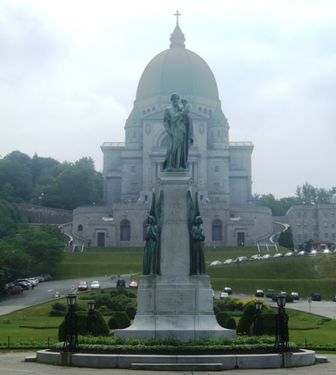 |
 |
As an edifice to demonstrate the power of God and the Church it must have
few equals in the world. Built on a hillside, you are always going up,
although once inside there are escalators to assist you. Started in 1904 by
its founder, brother André, the shrine is dedicated to St Joseph and can
accommodate 10,000 people in the basilica. |
| There are three sections of steps up to the first
level. The centre one is reserved for pilgrims who climb them on their
knees. They do seem a little smoother, probably easier on the knees. But a
reminder that Quebec is still a very religious province and that they
believe that religion and humility go hand in hand. | 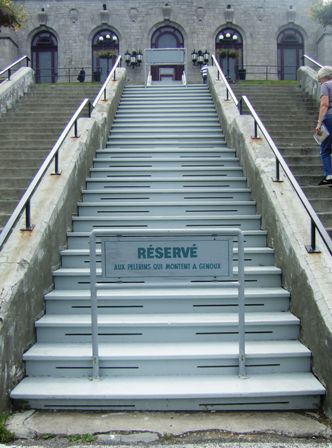 |
 |
The view from the top of the steps over the gardens towards the island of
Laval. Montreal itself is behind you. |
| Inside is a small museum of religious dioramas such
as this one at the entrance. We didn't go in since what we could see didn't
have much meaning for us but there was a steady stream of visitors. |  |
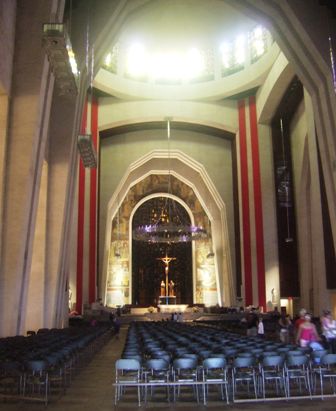 |
The main basilica is very impressive with tremendous height and imaginative
use of light both natural and artificial. The inside is as inspiring as the
outside. At 97m high the dome is second in height only to St Peter's in
Rome. |
| Unlike many such buildings, it is relatively
modern and this can be seen in man ways, notably in this shot of the altar
with the modern paintings and coloured statues around it. | 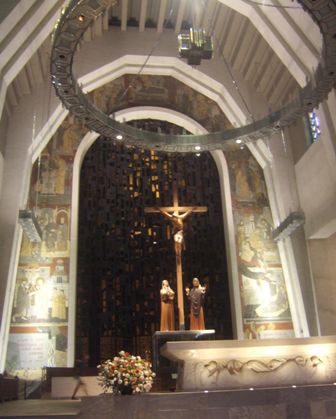 |
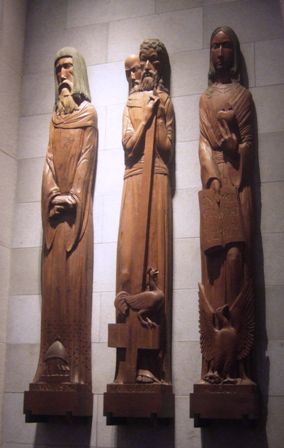 |
These wood carvings, one of several groupings of three, may be of old apostles but the style and methodology is
very modern and in keeping with local crafts within Quebec. |
| The stone/plaster casting is also very modern in its
style despite the period of its subject. | 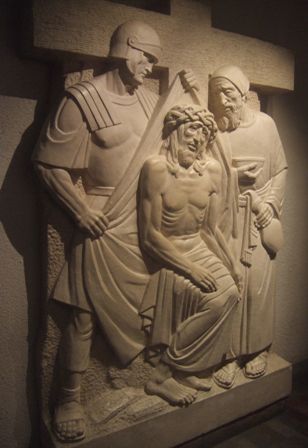 |
 |
Even the stained glass is of modern design and colouring. Deep reds and
blues are rarely found in old glass since they were so difficult and
expensive to make. |
| The internal doors too reflect very modern style. They
were all different but no doubt conveyed a story to those in the know. | 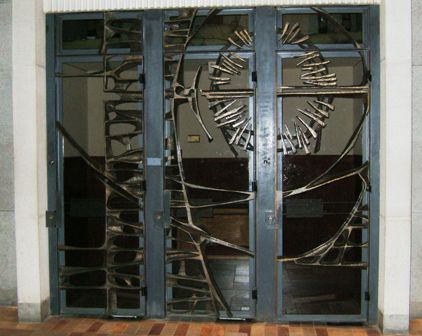 |
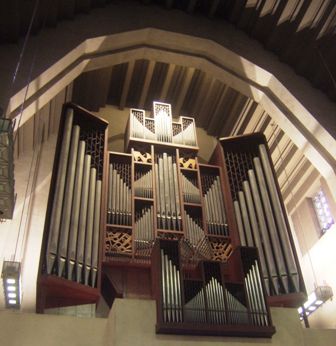 |
The organ is ranked in the top 10 in the world. It was built in Hamburg in
1958-9 and is the greatest accomplishment of Rudolph von Beckerath
(1907-76). There are prestigious concerts given throughout the year. The
Oratory also houses a 56 bell carillion which was originally built for the
Eiffel Tower in France but was offered to the Oratory in 1954 to celebrate
its 50th anniversary. It is one of the largest in North America. |
| It seems much smaller from the side but you must
remember all those steps at the front and the front building which is almost
as tall as this is. | 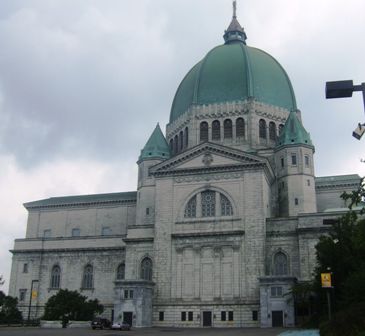 |
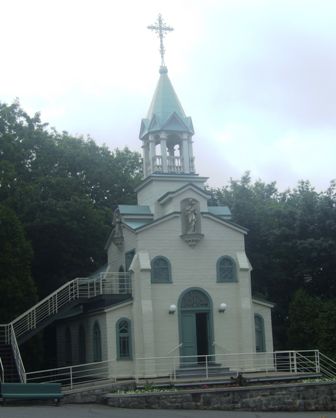 |
To the rear is Brother André's chapel which is also where he lived in a tiny
room above the entrance. You can go in and see the simple cell he occupied
which is above the chapel itself and has an internal window overlooking the
altar. |
| The chapel is tiny but has a steady stream of folk
coming in to pray. It is reputed to cure the sick and make the lame walk. |  |
 |
And it must be true from the notes of appreciation on the wall and the
collection of crutches no longer required. |
|